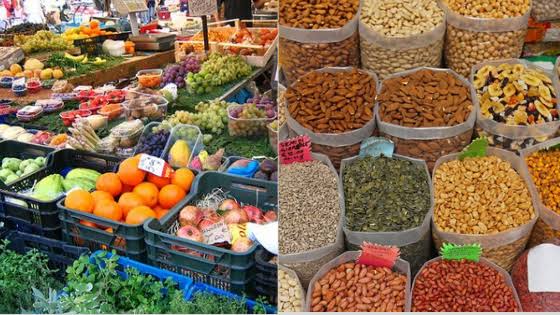Kogi, Akwa-ibom, and Kwara States recorded the highest food inflation in the Month of May 2022, according to the National Bureau of Statistics (NBS).
While Kogi recorded the highest food index of 22.79 percent, Akwa Ibom had 22.47 percent and Kwara had 22.21 percent.
The ongoing conflict between Ukraine and Russia is putting pressure on local prices of food and services, according to available data.
Considering that the nation depends mostly on importation for its raw materials and fuel, there are concerns about the impact on certain food items for which critical raw materials export have been curtailed.
The Lagos Chamber of Commerce and Industry had noted that the war between Ukraine and Russia would likely make the world’s hunger crisis even tougher to fight.
According to the NBS Report, while Kaduna, Anambra and Jigawa recorded the slowest rise in year-on-year food inflation with 16.49 per cent, 16.54 per cent and 16.91 per cent, Abia had 20.12 per cent, Abuja (20.69%), Adamawa (18.02%), Bauch (17.14%), and Bayelsa (19.64%).
Similarly, Benue recorded food inflation of 20.10 per cent, Borno (17.88%), Cross river (22.06%), Delta (20.84%), Ebonyi (22.03%), Edo (20.47%), Ekiti (21.96%), Enugu (19.49%), Gombe (19.75%) and Imo (19.73%).
Also, food inflation in Kano was put at 19.30 per cent, while Katsina had 17.86 per cent, Kebbi (20.48%), Kogi (19.06%), Kwara (22.21%), Lagos (20.08%), Nasarawa (19.04%) and Niger (19.78%).
For Ogun, the state recorded food inflation of 19.25 percent, while Ondo recorded 19.72 percent, Osun (17.98%), Oyo (18.43%), Plateau (19.42%), Rivers (21.83%), Sokoto (17.01%), Taraba (20.72%), Yobe (16.59%) and Zamfara (19.69%).
In recent times, Kogi State’s inflation has been on the rise. Its increase has been consistent overtime in the last five month of 2022.
For instance, in January, food inflation was 22.61 percent in Kogi, while Akwa Ibom had 19.67 percent and Kwara 19.09 percent.

